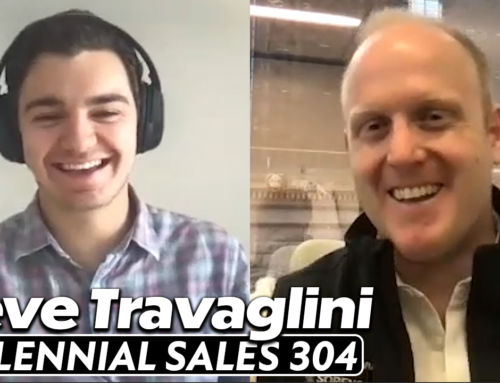Podcast: Play in new window | Download (Duration: 22:33 — 20.6MB)
Subscribe: Apple Podcasts | Spotify | RSS | More
I looked down at the bright red ink: 76/100 in bold letters, circled at the top of my paper. I glanced at my friend’s paper next to mine: 98/100.
He looked nonchalant as if expecting this result. My heart sinks into my stomach.
I couldn’t believe I stayed up all night studying for another “C”, while Brendan spent more time digging into LeBron’s jump shot than our textbooks. “He’s just smarter than I am, there’s nothing I can do”, I thought.
Brendan, my best friend in high school, was a classic case of a natural genius that didn’t need to try hard in school to earn his grades. He was also a natural athlete that made the competitive soccer, basketball and track teams.
These things didn’t come as easily to me. I had to work harder to get worse grades in easier classes than Brendan. I was undersized and admired my friend’s natural abilities.
What I’ve come to realize is that Brendan and I not only had different abilities but were also developing different mindsets.
He became captivated with the fixed mindset that encourages the idea that our abilities are carved in stone. I focused on the growth mindset, based on the belief that your basic qualities are things you can cultivate through your efforts, your strategies and help from others.
It was as if we were in different worlds.
In Carol Dweck’s book, Mindset, she acknowledges these two different worlds.
“In one world, effort is a bad thing. It, like failure, means you’re not smart or talented. If you were, you wouldn’t need effort. In the other world, effort is what makes you smart or talented. You have a choice. Mindsets are just beliefs.”
Though Dweck notes that mindsets are “just” beliefs, these beliefs can absolutely change the world we live in.
Obstacles
The dangerous part of the fixed mindset is that it works – for a period of time. A time where everything is rosy, you’re hitting your goals, you seem to be firing on all cylinders.
However, the two mindsets tend to view, and respond to, challenges differently. The fixed mindset sees it as a failure, a reason to quit. “If I were talented (or smart or pretty) enough, it would be easy.” The growth mindset sees it differently.
Ever wonder why there are so many famous entities that have overcome such adversity to achieve greatness? How Michael Jordan got cut from his high school basketball team and still became the greatest player of all time? The growth mindset is a major factor.
Let’s take Jordan for example. If he had a fixed mindset, he would have told himself that he got cut because he wasn’t good enough. And if he wasn’t good enough today, he won’t be good enough tomorrow. Can you imagine that?
His growth mindset allowed him to view this as a challenge. A challenge to practice harder, learn more and work his ass off to earn his position on the team the next year.
The growth mindset welcome obstacles as a chance to improve. Dweck writes that people in a growth mindset “don’t just seek challenge, they thrive on it.” The bigger the challenge the more they stretch.
Define
Definitions and precise language are imperative for a happy, fulfilled life.
One word thrown around too frequently without definition is “success.” We tend to label success by artificial metrics: Instagram followers, recent promotions, financial wellbeing, etc.
There’s no “right” way to define success, but there is a tendancy among growth mindset practitioners to value effort, learning and growth over the end result.
Tom Bilyeu, Founder of Quest Nutrition and Impact Theory, noted that his entire life changed when he transferred his self-worth from his abilities to his learner. Every day, he tells himself “I’m a learner”, as a way to reinforce this pattern.
Under this philosophy, Bilyeu no longer sees obstacles as an issue. Lost your biggest customer? The company is in financial trouble? Made a mistake that causes headaches across the company? Although these are not ideal scenarios, he can view these as opportunities to learn, grow and improve.
Leadership
Once you cultivate the growth mindset for yourself, the next step is to spread it with others. Both mindsets can spread and affect your team, family & friends around you.
“Sadly”, Dweck says, “most managers and even CEOs become bosses, not leaders. They wield power instead of transforming themselves, their workers and their organization.”
Winston Churchill, regarded as one of the world’s greatest leaders of his time, went as far as to have a full department dedicated to telling him bad news. He valued the right answer, not necessarily the one that would make him feel good.
Another way to do this is to identify where praise comes from. Most bosses praise employees only on the end results that they produce – a deal closed, a paper written, a bug fixed. However, growth mindset leaders look past the end result to the process that led there – a persistent salesperson, the five rough copies of the finished paper, the strength to ask for help when solving a problem.
End results are great, but the process is what leads to repeatable results.
Relationships
The first kiss. Love at first sight. The initial spark and butterflies. Though these are parts of a great relationship, they do not dictate one that will last. As Dweck writes,
“In the growth mindset, there may still be that exciting initial combustion, but people in the mindset don’t expect magic. They believe that a good, lasting relationship comes from effort and from working through inevitable differences.”
They say that choosing a partner is choosing your problems. Nobody is perfect, and someone’s imperfections are another reason to love them. The growth mindset way to handle these imperfections is to address them and treat it as a working process with your partner.
I asked my grandfather how he stayed married to my grandmother for fifty years, until she passed away. His response? Work.
Wrapping Up
I’m not sure where Brendan is today or what is mindset is.
But I know where mine is.
It’s not always perfect. It’s not always successful. But it’s focused on growth, on learning, on failing elegantly. And I follow the Tony Robbins mantra: “Everyday, in every way, I am getting stronger and stronger.”
Listen Here:
iTunes
Google Play
Stitcher
Sign up for the weekly Millennial Momentum Newsletter. No BS, All hustle



